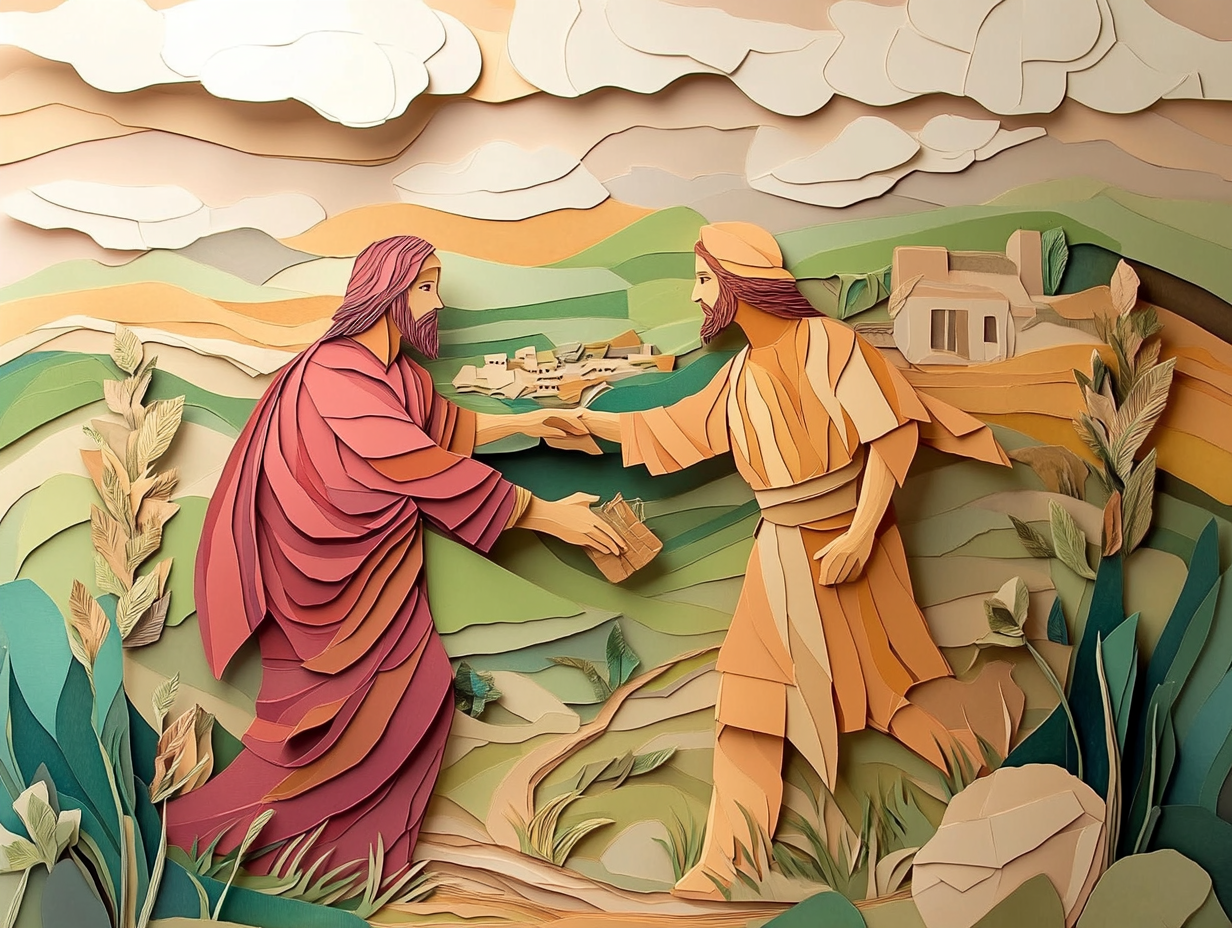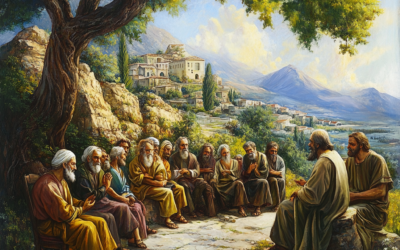Forgiveness is one thing—hard, but achievable on your own. Reconciliation, though? That’s next-level. I truly believe It takes two people, intentional effort, and a whole lot of grace. It’s about making right something that no longer exists, trust, connection, and even love. It’s hard though—it’s messy, slow, and sometimes impossible. Reconciliation reflects exactly what god did for us. He put his hand out first and following this important lesson helps us become closer.
Paul does a nice job of explaining this complex topic in 2 Corinthians 5:18–19 (NASB):
“Now all these things are from God, who reconciled us to Himself through Christ and gave us the ministry of reconciliation, namely, that God was in Christ reconciling the world to Himself, not counting their wrongdoings against them, and He has committed to us the word of reconciliation.”
2 Corinthians 5:18–19 (NASB)
The Divine Blueprint for Reconciliation
Reconciliation starts with God. He didn’t just forgive our sins and call it a day—He made it possible to restore our relationship with Him. This is why Paul calls it a “ministry of reconciliation.” It’s not optional; it’s a calling. Romans 5:10 (NASB) explains:
“For if while we were enemies we were reconciled to God through the death of His Son, much more, having been reconciled, we shall be saved by His life.”
Romans 5:10 (NASB)
We were his enemies first, and God made the first move. That’s the standard we’re called to emulate—seeking peace even when it feels undeserved. Even though God made the first move, we still need to be a part of the reconciliation process because it takes two, we’ll get into the next step later.
Forgiveness vs. Reconciliation
Here’s the catch: reconciliation isn’t always possible. That’s why forgiveness stands apart. Jesus highlighted this in the Lord’s Prayer:
“And forgive us our debts, as we also have forgiven our debtors.”
Matthew 6:12 (NASB)
Forgiveness can be just one person forgiving and forgetting, and it does not always release both parties from those emotions. Reconciliation, on the other hand, requires a truly combined effort to rebuild. Romans 12:18 (NASB) has this to say:
“If possible, so far as it depends on you, be at peace with all people.”
Romans 12:18 (NASB)
“If possible.” Those two words acknowledge that reconciliation isn’t guaranteed. Sometimes, the other person isn’t ready—or willing—to meet you halfway. And sometimes, the damage is too deep to repair. But as far as it depends on you, pursue peace.
The Cost of Reconciliation
Reconciliation often demands humility, vulnerability, and courage. Jesus gave us a powerful illustration of this in the parable of the prodigal son (Luke 15:11–32). When the son returned home, the father ran to meet him—a scandalous act of love in that culture. But notice this: the father’s forgiveness didn’t erase the son’s journey. They still had to rebuild their relationship. That’s what reconciliation looks like—messy and miraculous at the same time.
When It’s Out of Reach
What happens when reconciliation just doesn’t work? Maybe the other person refuses to change, or the wounds are too raw. Jesus addressed this in Matthew 18:15–17 (NASB), offering guidance for handling conflict:
“Now if your brother sins, go and show him his fault in private; if he listens to you, you have gained your brother. But if he does not listen to you, take one or two more with you, so that on the testimony of two or three witnesses every matter may be confirmed. And if he refuses to listen to them, tell it to the church; and if he refuses to listen even to the church, he is to be to you as a Gentile and a tax collector.”
Matthew 18:15–17 (NASB)
Sometimes, despite your best efforts, reconciliation is out of reach – it’s not only up to just you. And that’s where forgiveness steps in, allowing you to let go and move forward without bitterness.
The 10 Thousand Foot View
Ultimately, reconciliation is about reflecting God’s heart. Colossians 3:13 (NASB) reminds us:
“…bearing with one another, and forgiving each other, whoever has a complaint against anyone; just as the Lord forgave you, so must you do also.”
Colossians 3:13 (NASB)
It’s not easy. In fact, it’s impossible without God’s grace. But every step toward reconciliation—whether it succeeds or not—is a step toward living out the gospel.
Reconciliation is a miracle wrapped in a mess. It’s not guaranteed, but it’s always worth pursuing. Forgiveness may stand alone, but reconciliation—when it happens—is a glimpse of God’s kingdom on earth.
Additional Resources
Books:
These are Amazon affiliate links for these books. We use affiliate links to offset our operating costs. Using them helps us stay online. You don’t have to use these, though; you can just search for the book. Happy reading!
-
Reconciling All Things: A Christian Vision for Justice, Peace and Healing
Emmanuel M. Katongole and Chris Rice provide a theological framework for reconciliation, emphasizing its significance in justice and peacebuilding. -
Forgiving As We’ve Been Forgiven: Community Practices for Making Peace
L. Gregory Jones and Célestin Musekura discuss the transformative power of forgiveness and its role in fostering genuine reconciliation within communities.
Web Resources:
-
18 Bible Verses about Reconciliation
A compilation of scriptures highlighting the importance and process of reconciliation in the Christian faith. -
What Does the Bible Say About Reconciliation?
A topical exploration of reconciliation, offering numerous Bible verses and interpretations.
Scripture quotations taken from the NASB® (New American Standard Bible®), Copyright ©, 2020 by The Lockman Foundation. Used by permission. All rights reserved.









0 Comments